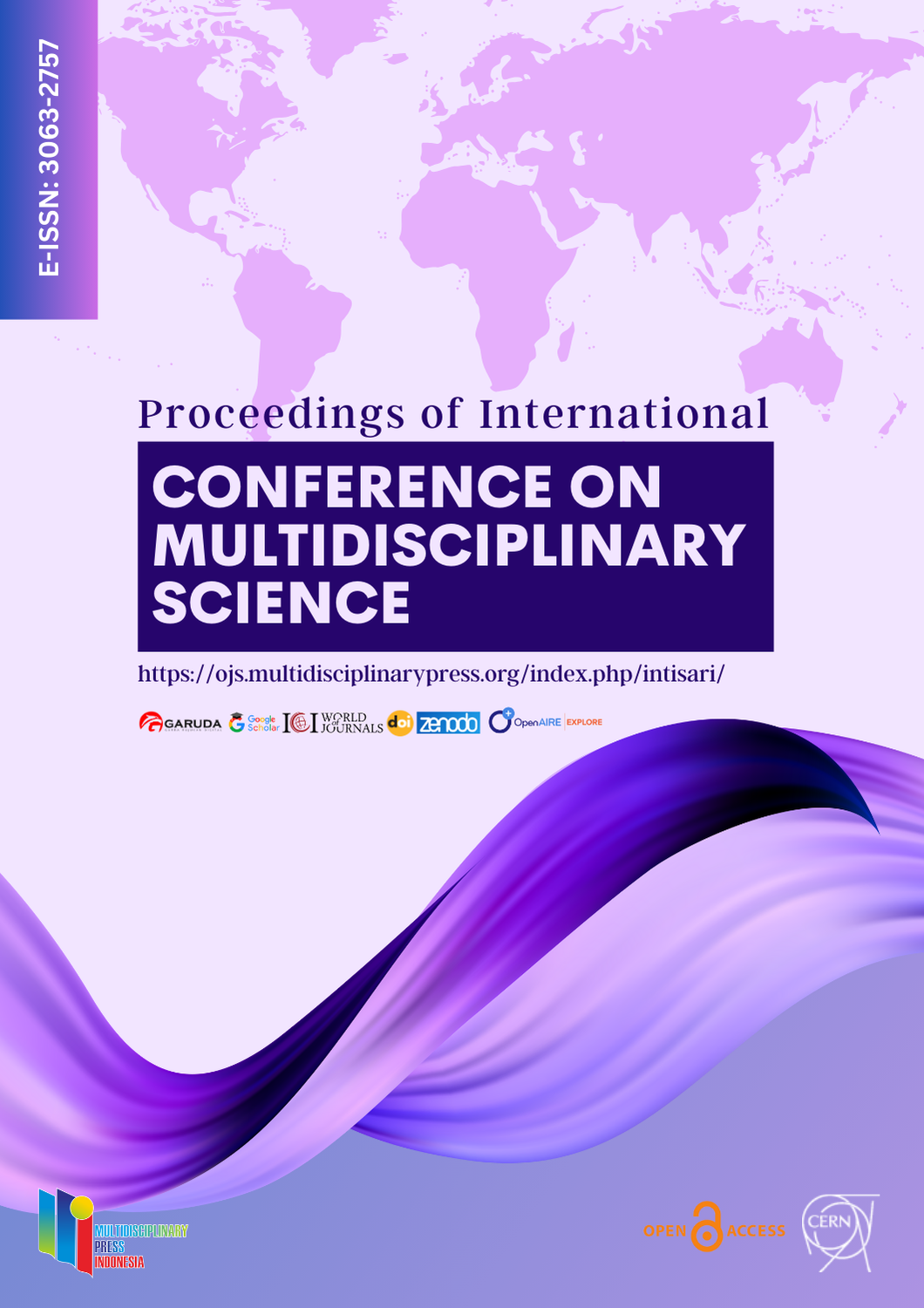The Effect of Workload, Interpersonal Conflict on Work Stress with Work Motivation as A Variable Moderating at BPJS Employment Branch Offices in Medan Raya
Keywords:
Workload, interpersonal conflict, organizational commitment, work motivation, work stressAbstract
In this study, researchers wanted to see the direct and indirect effects between workload variables and interpersonal conflict as independent variables and work motivation as a moderating variable and job stress as the dependent variable. This type of research uses quantitative, this research was conducted at BPJS Employment Branch Office Se-Medan Raya. The population of this study was 80 employees and the sample used was all the population using the saturated sample technique. The data source used is primary data sources and the data collection is done by distributing questionnaires. The research model used is phat analysis with smart PLS version 3.3.3. as a research measurement tool. The results of this study are as follows Interpersonal conflict has a positive and insignificant effect on work stress with an original sample value of 0.096 and p values 0.514. Workload has a positive and significant effect on job stress with an original sample value of 0.580 and p values of 0.000. Interpersonal conflict has a positive and significant effect on job stress through work motivation directly with the original sample result of 0.179 and p values 0.001. Workload has a positive and insignificant effect on work stress through work motivation with an original sample value of 0.013 and p values of 0.802.
Downloads
References
Adha Risky Nur, Nurul Qomariah, Achmad Hasan Hafidzi. 2019. Pengaruh Motivasi Kerja Lingkungan Kerja Budaya Kerja Terhadap Kinerja Karyawan Dinas Sosial Kabupaten Jember. Jurnal Penelitian Ipteks. Vol. 4 No. 1.
Ahmad Hannani. 2016. Pengaruh Beban Kerja, Kepuasan, Fasilitas Terhadap Kinerja Perawat Di Ruang Perawatan Mawar Lantai II Rumah Sakit Umum Wisata UTT Makasar. Jurnal Mirai Manajemen. Vol. 01, No. 02. Di akses 10 April 2018 http:/ https://journal.stieamkop.ac
Arif Yusuf Hamali, S,S, M.M (2018). Pemahaman Manajemen Sumber Daya Manusia, Penerbit CAPS (Center for Academic Publishing Service), Jakarta.
Hasibuan, M. S. P. (2016).Manajemen Sumber Daya Manusia. Edisi Revisi. Jakarta : Bumi Aksara.
Munandar, Ashar Sunyoto. 2014. Psikologi Industri Dan Organisasi. Jakarta: Universitas Indonesia.
Nurwahyuni, Siti. 2019. Pengaruh Beban Kerja Terhadap Kinerja Karyawan Melalui Work Life Balance (Studi Kasus PT. Telkom Indonesia Regional V). Jurnal Ilmu Manajemen, Volume 7, Nomor 1.
Purnamasari, Tia et al. 2015. Pengaruh Faktor Stres Kerja Terhadap Kinerja Karyawan (Studi Pada Karyawan Plasa Telkom Group Malang). Jurnal Administrasi Bisnis (JAB), Vol. 1, No. 1.
Rivai, Veithzal. 2015. Manajemen Sumberdaya Manusia Untuk Perusahaan Dari Teori ke Praktik Jakarta: PT. Raja Grafindo.
Robbins, Stephen P & Judge, Timothy A. 2014 Organizational Behavior Edition 15. New Jersey: Pearson Education
Robbins, Stephen P. and Mary Coulter. 2016. Manajemen, Jilid 1 Edisi 13, Alih Bahasa: Bob Sabran Dan Devri Bardani P, Erlangga, Jakarta.
Sugiyono. 2016. Metode Penetilian Kuantitatif Kualitatif dan R&D. Bandung: Alfabeta.
Suwondo Dalam Wijono (2014) Manajemen Sumber Daya Manusia Untuk Perusahan
Tarwaka 2015, Ergonomi Industri: Dasar -Dasar Pengetahuan Ergonomi dan Aplikasi di Tempat Kerja. Surakarta: Harapan Press
Tommy, Y.D. 2014 Pengaruh Konflik Kerja terhadap Burnout pada pegawai Bagian Produksi UD. Abadi Lestari Bojonegoro. Skripsi UM (tidak dipublikasikan).
Wibowo, 2016. Manajemen Kinerja, Edisi Kelima, PT. Rajagrafindo Persada Jakarta-14240.
Downloads
Published
How to Cite
Issue
Section
Categories
License
Copyright (c) 2024 Ade Ilham Jusuf, Muhammad Isa Indrawan

This work is licensed under a Creative Commons Attribution 4.0 International License.





